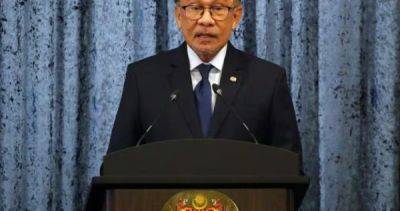In the Philippines, Marcos Jnr ‘rebrands’ family name as he charts ‘progressive’ path
For the first time in 38 years, Filipinos will not officially celebrate the anniversary of the “People Power Revolution” on February 25 after it was removed as a public holiday, a move critics say is part of a larger strategy to distance the Philippines from the dark legacy of former president Ferdinand Marcos Snr.
The late strongman, whose rule was marked by widespread human rights abuses and corruption, was ousted in a bloodless people-led uprising in 1986. Analysts say his son, current leader Ferdinand Marcos Jnr, is embarking on a series of moves aimed at redefining the family’s narrative both at home and globally.
For Vergel Santos, who worked as a journalist during Marcos Snr’s reign and now sits on the board of the Center for Media Freedom and Responsibility, erasing the public’s “memories of the dictatorship of his father and the torture and the plunder” has not been a hard thing to do.
“In fact, younger people have no memory of the blood sins of the father,” he said.
In the 2022 presidential election, 56 per cent of the 67.5 million registered voters were aged 18 to 41 – meaning most were born after the People Power Revolution or were toddlers at the time.
Santos expressed the belief that Marcos Jnr was trying to “vanquish” the remaining memories of his father’s “draconian regime, his torture, murder and plunder”.
Marcos Snr’s dictatorship was marked by 3,257 known extrajudicial killings, 35,000 documented tortures, 77 “disappeared”, and 70,000 incarcerations, based on evidence collected by Amnesty International which Marcos Snr allowed inside detention camps, international and local human rights and church organisations which conducted investigations at that time.
He is also suspected of stealing at least US$10







